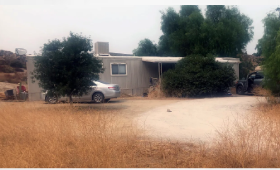On February 27, 2024, OLCC quietly filed a notice of proposed rulemaking that would delay the implementation of OLCC’s batch tagging rule from its current (and previously delayed) implementation date of April 22, 2024 to June 17, 2024. This is the latest in a long line of delays and excuses by this agency to a very overdue reform that licensees have been seeking for years. As discussed below, OLCC is obfuscating the reason for the delay, which should give the cannabis industry concern as to whether the agency that regulates it is dealing squarely with its constituents and the general public.
What’s all this about “batch tagging”?
Before I dive into what batch tagging is, we have to start with the baseline. The Oregon Legislature has assigned to OLCC the task of creating and maintaining a “seed-to-sale” tracking system of all recreational (and some medical) marijuana grown in Oregon. There are, of course, laudable goals in tracking marijuana as a consumer agricultural commodity – it provides transparency to consumers that the marijuana they’re purchasing is what it represents itself to be and provides accountability to producers and downstream licensees when there are issues that can lead to product recalls like failed pesticide tests. At the inception of the recreational marijuana program in 2015 there was an additional stated reason for seed-to-sale tracking – marijuana is a Schedule I controlled substance and therefore the state needed to be able to tell quickly and easily whether marijuana was being diverted to the illicit market in order to effectively keep the federal government from shutting down the program writ large. However, with federal rescheduling on the horizon, that justification carries less force today than it did in 2015.
In 2015, OLCC published its first set of rules surrounding the seed-to-sale tracking system, and also entered into a 10-year contract with Metrc to build the system, largely around its already existing similar tracking systems it built for Colorado and Washington. OLCC’s rules required that every marijuana plant over 36 inches tall be individually tagged with a unique radio-frequency identification (“RFID”) tag, with each tag being assigned a unique number in the seed-to-sale tracking system. What producers quickly learned was that these plant tags were expensive – Metrc charges 45 cents per tag. With producers having thousands of plants to keep track of per harvest and many having multiple harvests per year, that hard cost adds up, not to mention the significant labor cost it takes to individually tag each plant. To add insult to injury, OLCC rarely even uses the RFID functionality of the tags but frequently dings licensees for not having them. Individual plant tagging also doesn’t advance any public health goals – the marijuana harvested from a particular plant gets mixed in with other plants harvested at the same time, of the same strain, and grown under the same conditions and placed on a new Metrc tag (called a “package tag”). In other words, there’s never been a way to trace a given batch of marijuana flower to an individual plant tag, only to a group of hundreds of plant tags that were the same strain and harvested at or around the same time.
Many licensees were vocal about the lack of any cost/benefit advantage to individual plant tagging early in the program, and finally got some traction at OLCC for reform of this rule when then-Executive Director Steve Marks was invited to a farm to witness first hand the labor-intensive task of placing a useless RFID tag on thousands of individual pants. In 2022, OLCC began taking seriously a proposal to allow licensees to track plants via batches of no more than 100 plants, which is now what is known as “batch tagging,” and vowed to promulgate a rule amendment to allow batch tagging.
March 2023 – Batch tagging rule adopted with implementation date of January 1, 2024.
On November 28, 2022, OLCC filed a notice of proposed rulemaking proposing to implement the batch tagging concept, and on March 17, 2023 made the rule final with an effective date of January 1, 2024. Notably, the language of the rule does not require any particular functionality within the Metrc system as the trigger. Indeed, the language of the rule presumes that the current RFID plant tags that licensees were purchasing for each plant would simply be utilized for a batch of up to 100 plants instead of a single plant. And with that, the industry breathed a sigh of relief, right? Not so fast.
December 2023 – First delay announced
On December 15, 2023, OLCC announced in a bulletin that they were temporarily amending the rule to delay implantation of the batch tagging rule until April 22, 2024, pointing to a “contract procurement process with Metrc” that “has not been completed.” OLCC explained that an amended contract with Metrc was needed that includes batch tagging. However, smarter people than me have reviewed OLCC’s contract with Metrc (which is a public record) and found that the contract didn’t address Metrc’s sales of tags to licensees at all.
Indeed, those in the know had heard that Metrc was pushing back on OLCC’s rule change precisely because it threatened a captive source of revenue to Metrc from producer licensees. Making things worse, OLCC was indulging Metrc’s pushback rather than correctly informing them that the contract does not protect this particular source of revenue. With Metrc’s contract up next year regardless, one wonders why OLCC failed to use their power to protect licensees from the greed of an out-of-state contractor, and is instead bending over backwards to delay this much needed reform.
Where things stand now
As is noted above, late last month OLCC announced yet another delay in implementing the batch tagging rule, citing the same lame excuse. To reiterate, the rule language they permanently adopted last year does not require any change to the Metrc contract – it simply allows licensees to use their current inventory of plant tags to cover a batch of up to 100 individual plants. What is now being explained by OLCC is that Metrc needs this additional time to develop a new product – a new type of tag for varying amount of plants up to 100, presumably with a larger price tag to the licensees. This latest excuse is, to state it bluntly, a load of baloney – Metrc currently has the capability of assigning a batch to a single tag. Indeed, that’s precisely how package tags work.
The bottom line is, why is OLCC delaying implementation of this rule that they’ve had on the books for more than a year? The excuses made thus far don’t add up, and it appears there is some dishonesty happening at the OLCC staff level to thwart the policy put into place by OLCC’s Board of Commissioners last year. Hopefully there is an investigative journalist that might be willing to dig a little deeper to see how Metrc’s influence peddling is so successful.
Call to Action
OLCC is conducting a public hearing on the latest delay of the batch tagging rule this Friday, March 15, 2024 where public comment can be received. You can find instructions for attending this public hearing virtually here. In addition, you can offer written comment on the proposal to delay batch tagging through March 31, 2023 by sending an email to [email protected].
You can contact Kevin Jacoby at [email protected] or schedule a consultation by calling (503) 208-4470.


















